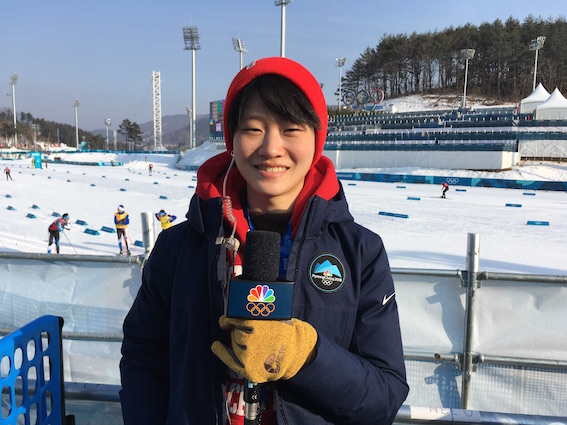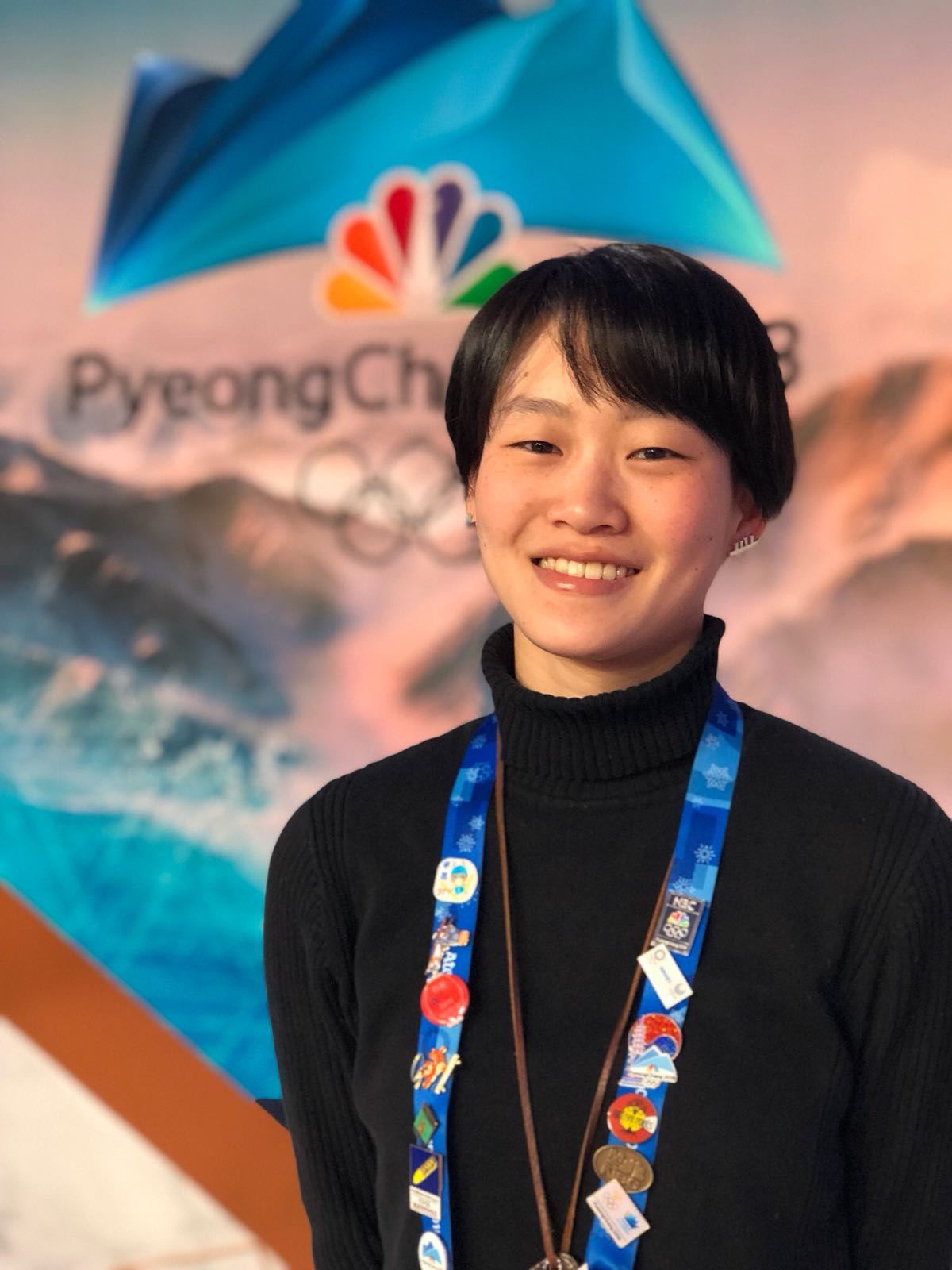
The PyeongChang 2018 Olympic Winter Games was dubbed by some as the most political Olympics yet, with the US suggesting a possible boycott and several sudden decisions leading to the joint entrance of the two nations on the divided Korean peninsula. Sunhee Bae, a volunteer for this year’s NBC Olympic broadcasts, was kind enough to share some of her experiences in the Olympics, which give us a more excitingly peaceful and less political insight of the Olympics.
Could you briefly describe your experience as a member of the NBC broadcasts at PyeongChang?
First of all, I was amazed by the sheer size of the operations taking place at the venue. NBC had one of the biggest crews out of all the broadcasting companies at PyeongChang. Most of the crew at NBC had worked at multiple other Olympics before PyeongChang and were attentive enough to be extra nice to people like me who were new to the Olympics. They were also very pleased with the PyeongChang Olympics compared to the previous Olympics.
As a “runner”, my job was to provide general assistance to the crew at the cross-country venue. This included everything from managing the accreditation bibs and armbands and preparing the headshot and start lists for the producer to just grabbing food and drinks for the crew on busy days.
Were there things that you found particularly interesting at the Olympics?
One really strange culture I noticed at the Olympics was exchanging pins, which included everyone working at the venue — even volunteer workers. All the departments at NBC Olympics had their own pin designs and the people would give you pins if you worked for them or did them favors. Other broadcasting companies such as the Chinese network CCTV and German radio stations had them too. Some doors even had “no pins” signs written on them because people were just knocking on doors to get pins.

The joint entrance of North and South Korea was a very sensitive topic this Olympics. What did the people at PyeongChang think about this issue?
The people I got to work with didn’t offer much of their opinions. They were usually more curious about my views on the joint entrance. But I think they felt relieved that it happened because it gave them a sense of safety.
Some of the non-Koreans I met at PyeongChang expressed concerns that South Korea was paying for all the costs of hosting the Olympic Games but wasn’t even able to enter the opening ceremony under its own flag. But I don’t think South Koreans see North Koreans the way foreigners think we do — we might be separate nations but South Korea making a joint entrance with North Korea is not like a joint entrance with any other country. If anyone asks a South Korean to draw a map of the country they live in, they’ll draw the whole peninsula, not just the area below the 38th parallel line.
What were your overall impressions of the Olympics?
Frankly, it was only when I got to the Olympic site and started working there that I began to realize how large of an event the Olympics is. Countries all over the world come to compete at the Olympics; the way these athletes, reporters, and spectators come together from all the different countries around the world is a very unique gathering. And I realized how being a part of the Olympics is truly a once-in-a-lifetime opportunity.
The only thing that bothered me about the Olympics was the amount of destruction of the environment and the local community that comes with hosting such a big event. At PyeongChang, the issue was the construction of the venue; a sacred 500-year-old forest was torn down. This must happen all over the world; every two years, villages or natural habitats will have to be demolished to make room for stadiums that will be used for only a week. I think it is a problem that more people should be aware of when they think about the Olympics.
Back to the Olympics itself; people seemed to complain a lot about transportation, the difficulty of finding entrances, and the outbreak of the Norovirus. How badly did these issues affect PyeongChang?
Yes, the transportation was a bit of a mess. I once was in a tricky situation, where I was the only Korean and had to translate between the bus driver and an angry mob of reporters trying to make it back to their hotel. Part of the problem was that the volunteer who had been assigned to the buses, to check accreditation and provide info on where the bus was headed, did not speak English very well. Most volunteers who were fluent in English were assigned to medical and other operations, which was problematic because there weren’t enough people to do basic translations for transportation. Additionally, the Go PyeongChang app, which was the official transportation app for the winter games, displayed the wrong bus schedules. But from what I’ve heard from the NBC workers, the problems with transportation happen all the time and PyeongChang was not particularly bad. But it was particularly cold, which exacerbated things.
I am not sure if the city planning could have been better on this issue. It was sometimes tricky to find the correct entrance but it would have been difficult to make it any more convenient than it already was. Also, on the Norovirus, most of those who got infected were the volunteers and no one at NBC was infected so I did not have much info on the happening.

